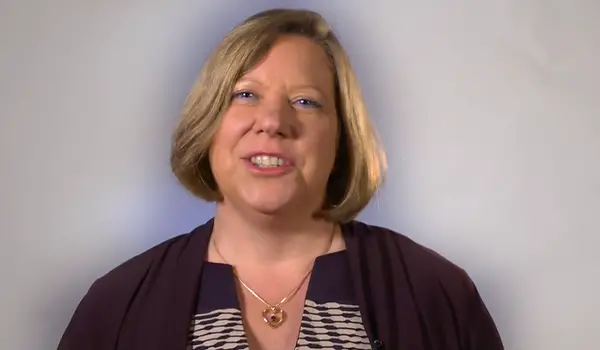IT professional finds focus with cybersecurity franchise
“I was one of those really lucky people that met a computer when I was a 10th grader in high school and fell in love with the notion of computer programming,” recalled Linda Kuppersmith, president and chief technology advisor for the Connecticut franchise of CMIT Solutions, with offices in Stamford and West Hartford.
The ability to write code and see the instant effects of the work led Kuppersmith into software development. She worked for Wall Street brokerage houses and a pioneering telecommunications firm, which helped realize SMS messaging. But as her career progressed, she found herself desiring more control over her schedule.
“I came to a point in my career where I wanted control over my time, having a family, taking care of seniors, so I had the notion of getting some kind of franchise,” she added. “As I started that investigation, I fell in love with CMIT Solutions.”

Kuppersmith considered other franchising options and had considered moving out of technology entirely, but she found herself attracted to CMIT ”” the acronym stands for Completely Managed Information Technology ”” in 2005 because it let her leverage her experience while reducing the risks of a startup in the cybersecurity market.
“It really affirmed to me that this is where my passion is in being able to translate business problems into technology solutions, working with people and being able to run my own IT services company inside of the framework of a well-thought-out business model,” she said. “I would’ve been scared to death if I had to do this on my own, and I have the greatest respect for people that take out a white piece of paper and create a business, but franchising is a much easier way with much less failure risk.”
Kuppersmith added the CMIT model gives her key competitive advantages as a managed service company. Through her two Connecticut locations, she is able to provide the level of access and approachability that the small and medium business that make up her clients look for, as well as knowledge of local system quirks and regulations. At the same time, she can leverage the larger CMIT network to access the expertise of her fellow franchisees.
“If somebody comes to me with an obscure telephone system that we haven’t worked with before, I’ll do a call out to our CMIT network and sure enough I will find somebody that’s done that and they’re able to say ‘oh yeah, we can help you, we know all about that,” Kuppersmith said. “That becomes better, faster, cheaper than some of our competitors.”
The franchise model lets a local team of nine people provide around-the-clock support and simple systems maintenance. Kuppermsith and her immediate team are available to help with anything more complex than a password change during business hours, while the CMIT network can handle the smaller but urgent issues that can crop up at any time of day or night with a dedicated support hotline.
This combination of on-demand support for essentials and dedicated local staff for more in-depth service is key to the types of businesses that Kuppersmith said make up her client list.
“Anybody dealing with people’s money is a target right now,” Kuppersmith said. “Hedge funds, anybody doing wealth management services, even independent folks working for an LPL. Anybody dealing with other people’s sensitive information. That sensitive information has a price tag on the dark web.”
Kuppersmith noted that in the past two years there has been a notable uptick on attacks against smaller law firms that manage real estate transactions or trusts, as well as CPA firms. Even if hackers are unable to redirect the flow of funds handled by these organizations, the identifying information on tax returns and access to Social Security numbers are prized on the dark web.
“I’m going to get on my soapbox and say to people that there are some basic things, which take care of 85% of the different cyber threats to small businesses,” Kuppersmith added, hoping that even non-clients will take their cybersecurity seriously.
She urged small-business owners to choose “long and strong” passwords that consist of three or four words with symbols between, as well as enabling multi factor authentication, which requires a log-in in two places.
“And think before you click because most of the evil that comes in is through email. They can get your username and password, but the real risk is clicking on links,” Kuppersmith concluded. “If people could just have better password hygiene that would go a long way. Every password should be unique and at this point you should really be using a password vault at this point in time, something like 1Password or Dashlane. The estimate I last read is that there is $4 trillion being made in cybercrime each year. That’s higher than what the drug cartels are making. If 85% of that is due to people misusing their passwords, that would mean 85% of that $4 trillion would be back in our pockets and economy.”